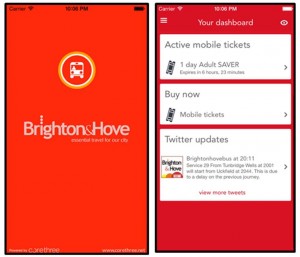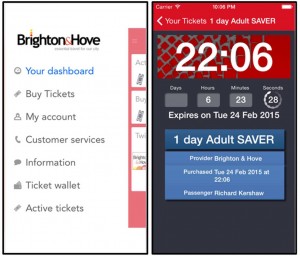Arguably one of the biggest trends in Digital Marketing currently is the rise and rise of mobile (Rowntree, 2015), and in particular mobile applications. Now I own a smartphone (iPhone 5 – bit behind now, I know!) and I’ve never been a massive techy, but recently I have been increasing the number of apps I’m not only downloading, but using!
But what exactly are the point of apps? I regularly use social media and newspaper apps, but aside from those, are they really necessary?
According to Rowntree (2015) mobile apps provide scope for huge amounts of customisation and a service that is fully built around the mobile experience, giving deeper, more tailored engagement for mobile users. Some argue a mobile site will do the job just as well and cheaper too (more on this later) but Haselmayr (2014) argues that apps are not just for big businesses, more and more small to medium sized firms are following the mobile trend and understanding that an effective mobile strategy means more than just a mobile-friendly site.
A great app that I think really works for its company is Brighton and Hove Buses (shown below).
Essentially it allows users to purchase their bus ticket through the app, and then use their phone as a ticket, benefiting both the company and the customer. For customers, it’s free to download, offers price savings and stores user information to make purchasing tickets easier. For the company, it generates revenue through ticket sales, whilst saving them expenses on both printing costs and buying change. Win win for both parties.
So does your business need one?
It seems the most important question here is does your customers behaviour demand one? Many companies are so eager to offer their customers some kind of mobile functionality that they fail to plan and implement the best strategy for them. First and foremost it’s about considering the needs of your consumer (Martin, 2015 and Andrew, 2014). What devices are they using and on what platforms? What are they using their devices for? Analysing this data can give some indication as to what type of interaction your customer is comfortable with, and therefore directs what you should be doing with mobile. Designing and creating effective mobile software is not easy – it requires advanced software development and design skills, not to mention thorough testing – therefore fail to do fundamental research and you run the risk of creating a mobile service that doesn’t match your customers behaviour, wasting both time and money (Andrew, 2014, Forbes, 2014 and Rowntree, 2015).
This brings us onto one of the major drawbacks of creating a mobile app over a mobile site.
Cost.
Creating an app is an expensive business. According to Forbes (2014) a high-quality app can cost in the region of hundreds of thousands of pounds, therefore with such a big investment you want to make sure you get it right. However, Andrew (2014) argues that there are also a growing number of basic and DIY websites enabling small businesses and those with a smaller budget to develop an app for their business more cheaply, so cost doesn’t necessarily have to be an issue. Although be warned, Forbes (2014) warns us that, like with most things, you get what you pay for.
So what about the argument that the long term benefits of apps mean lifetime costs are reduced (Andrew, 2014).
The truth is most apps struggle, according to Fox Rubin (2013) the odds of success are low, with only 80 of the more than 800,000 mobile apps available in Apple’s App Store generating more than $1million in revenue, so good return on investment is unlikely. However, his research was done in 2013, so maybe things are changing.
As well as high development costs there are also high costs involved in marketing. With so many apps to compete with, you need to consider how do you as a business get people to download your app (Andrew, 2014)? And with so many free apps, where is the money made?
Well in app purchases and advertising is one option, but how does this interfere with the customer experience?
One important consideration is usability and accessibility. Apps are limited to those with smartphones (Martin, 2015) and even those using smartphones are on multiple platforms and operating systems. Last year viewers of Celebrity Big Brother were left annoyed as the production company only made their app available to those with iPhones or iPads using iOS7, alienating vast sections of their audience who use Android, Windows or with older Apple devices. Obviously this could have major repercussions on your customer engagement and value, therefore it is essential that any mobile service is multi-platformed, and supported on any device (Andrew, 2014 and Cottle, 2015), which again increases cost.
However, it’s not all doom and gloom! Many businesses have great success running their apps and find they create a direct marketing channel with the consumer. Haselmayr (2014) points out that one of the biggest benefits to creating an app is the ease with which firms can communicate their information, such as booking details prices, search features, user accounts and much more, all at the click of a button.
In doing this apps have the ability to cultivate customer loyalty and increase consumer engagement. Haselmayr (2014) argues that apps allow businesses to go back to making a personal connection with the consumer, difficult in a world now saturated with advertising messages everywhere you look. This is further cemented by how accessible they make your business. In a 24/7 world apps are available to the customer anytime, anywhere and usually on any device they want (Andrew, 2014). However, the same can also be true for online and mobile sites in general.
So with all this in mind, is it really worth it?
Ultimately I think it goes back to the very first question we asked ourselves. Does your customer’s behaviour demand it?
Answer that question properly, and you could be well on your way to mobile app success.
For more inspiration, check out this TED Talk from an upcoming app developer … who’s just 12 years old! https://www.youtube.com/watch?v=Fkd9TWUtFm0
REFERENCES
Andrew, A. (2014) Should you go mobile-first to grow your business? How to build an app and ensure it’s a hit with your customers. This Is Money, 26th June 2014 [Online] <http://www.thisismoney.co.uk/money/smallbusiness/article-2634998/Should-build-app-grow-business.html> [Accessed 10th April 2015]
Cottle, L. (2015) Does your Second Screen Proposition have the X Factor? Digital Marketing Magazine, 7th April 2015 [Online] <http://digitalmarketingmagazine.co.uk/mobile-digital-marketing/does-your-second-screen-proposition-have-the-x-factor/1778> [Accessed 10th April 2015]
Forbes (2014) The True Cost Of Building A Mobile App. Forbes, 11th November 2014 [Online] <http://www.forbes.com/sites/groupthink/2014/11/11/the-true-cost-of-building-a-mobile-app/> [Accessed 10th April 2015]
Fox Rubin, B. (2013) The Dirty Secret of Apps: Many Go Bust. The Wall Street Journal, 7th March 2013 [Online] <http://www.wsj.com/articles/SB10001424127887324582804578346221047028366> [Accessed 10th April 2015]
Haselmayr, M. (2014) Here’s Why Your Business Needs Its Own Mobile App. Forbes, 17th November 2014 [Online] <http://www.forbes.com/sites/allbusiness/2014/11/17/heres-why-your-business-needs-its-own-mobile-app/> [Accessed 10th April 2015]
Martin, C. (2015) Want to Get Into Mobile Marketing? Know Your Customer. Digital Marketing Magazine, 8th April 2015 [Online] <http://digitalmarketingmagazine.co.uk/mobile-digital-marketing/mobile-business-goal-alignment/1787> [Accessed 9th April 2015]
Rowntree, J. (2015) Mobile Marketing for Online Retailers in 2015. Digital Marketing Magazine, 3rd February 2015 [Online] <http://digitalmarketingmagazine.co.uk/mobile-digital-marketing/mobile-marketing-for-online-retailers-in-2015/1481> [Accessed 9th April 2015]



